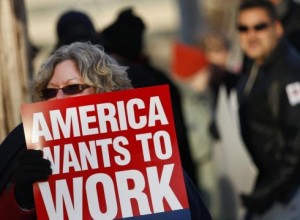By Patrick Dyer
It has been theorized that strong unemployment insurance would result in relatively higher rates of unemployment. These benefits fuel frictional unemployment and essentially provide an incentive for people not to work. Of course this is not the case for everyone. There are countless examples of how unemployment insurance (UI) have helped those struggling and in need. However, even for the clear benefits these programs offer, there is undoubtedly a correlation between UI benefits and unemployment.

New Jersey is among the top three states that offer the best UI benefits and also has the 41st highest unemployment rate, according to the Bureau of Labor Statistics (BLS). While the reasons for New Jersey’s 8.6 percent unemployment rate are too complex to be sufficiently covered in this article, I believe that the state’s generous UI benefits partially contribute to the high rates of unemployment.
First some background on New Jersey’s UI program: A person is eligible after losing a regular job (for reasons other than being fired) that was held for at least 20 weeks in the state. The amount of unemployment benefits received each week is 60 percent of the average weekly wages earned during employment. The UI compensation also varies from person to person based on dependency and the living costs of the area. New Jersey offers the third highest UI maximum payment with $624 a week, while the national average is less than $400. New Jersey is also a part of the five states that offer benefits for up to 79 weeks, compared to 72 weeks or less for the rest of the country.
On a personal note, one of my family members has been able to take advantage of New Jersey’s generous UI and welfare programs for her own gain. My aunt owns a small house and recently purchased a new car, even though she has worked sporadically throughout her life. She has managed to work about four months a year for the past 20 years and still live a comfortable life. It seems her goal is to work as little as possible while maintaining her lifestyle. Essentially, she works when she absolutely needs to and then stays at home collecting UI benefits along with welfare for the rest of the year. Because of New Jersey’s program, she has been able to coast through life while working as little as possible. I am sure the majority of people who receive UI benefits in New Jersey genuinely need it, but this is just one example of how someone can abuse the benefits offered.
Based on personal experience and the statistics found online, I think New Jersey should consider re-evaluating the generosity of current UI benefits. The states that offer the smallest UI benefits also generally have the lowest rates of unemployment in the country. On the other hand, New Jersey offers higher than average UI and has among the highest unemployment rate in the country. I believe these UI compensation packages can be attributed to the unemployment rates seen in the state. Some people, like my aunt, will choose to work as little as possible but still want to reap the benefits and take advantage of programs like UI. New Jersey should consider reducing UI benefits to national levels. This will decrease the incentive for some not to work and in turn slightly reduce unemployment rates.






